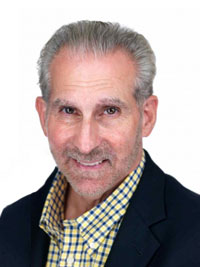 Inertia and Trust: Human Wiring
Inertia and Trust: Human Wiring
Inertia is the resistance of an object (or a person) to a change in its state of motion, or rest. We have all experienced emotional inertia in our lives. We can get stuck, all too often. Inertia keeps us on the straight and narrow up to a point, and it makes us feel stable and safe. It’s kind of a homeostatic norm.
Shareholders want to believe what they are told by the companies they conjointly own. It’s human nature. But as shareholders, and as people, we can become immobilized. We can become rigid, avoidant, and lazy. We can shirk due diligence; we don’t do enough of our homework. Rather, we obediently follow the dictums of our companies, our brokers, our financial advisors, and others we have entrusted with one of our most precious resources: our money!
The neurotransmitter responsible for trust, oxytocin, mediates our craving for trust and bonding. We can’t help it: it’s how we’re wired. But it’s possible to become too trusting, and then compliant. It’s a double edged sword. And that’s when trouble can start.
Frequently in our investment life we become passive and complacent. Psychologically, our portfolios are distant; most of us do not have hands on daily contact with them generally. At the extreme, we can run the risk of surrendering our companies to boards and management.
Shareholders dread betrayal and deception. Then something clicks often triggered market free fall, or the sound of bubbles popping. We have an epiphany (hopefully), and we realize that we have a voice. Our introspection deepens. We start perusing our holdings more vigilantly, and then we mobilize.
Main Street is mobilized more than ever, based on recent Wall Street history and behavior, to empower and express their voice. This year’s annual meetings have been quite lively beginning with Citigroup and Wells Fargo.
Chesapeake Energy: A Major Catalyst
Sometimes in life when the ante is raised so high, to the point of “wretched excess,” even the most inert of us are unable to continue to ignore reality. Overindulgence and intemperance can flavor and color even the most excessive behaviors to the point of exceeding proper or lawful boundaries.
Perhaps Aubrey McClendon did us all a profound service. His “activities,” across the board, may have finally awakened a “sleeping giant:” the American shareholder.
Human beings revolt only after being oppressed and abused for a significant period of time. Every person knows themselves, and what they can “take” until they hit the wall and “pop their cork.” The key is survival: when your survival is on the line, you act. The Dog ‘N’ Pony Annual Shareholder Meeting may just never be the same. There will be new shows on the circuit.
Shareholders have a voice, and they will insist on being heard, now more than ever. Shareholders know in their heart of hearts how valuable they are to their companies. They provide the fuel (the cash) to run the engine (company operations). And they have insight and wisdom honed over years of life experience. They are a force. Ideally, corporations will figure out creative ways to muster this force.
Americans are innate individualists and activists. Shareholder activism is as American as apple pie, pop tarts, and ginger ale. We may take a while to work up an appetite, but when we are “hungry” we can become ravenous, and determined to effect change.
The Blinding, Painful enLIGHTenment of Reality
Human inertia: the need and desire to stay the same, to be at peace. But at what cost? Corporate attitudes create and set up reactions, particularly when they neglect their shareholders. For corporations to ignore and/or be unaware of this is unfathomable. The corporation’s attitude structure vis a vis shareholders is of paramount importance. We are all partners in the enterprise. It’s fundamental.
People (shareholders) will let themselves be pushed and bullied to a point. And then they push back. They have to in order to survive, to assure company sustainability, and to maintain their self-respect and dignity. Recent events at Chesapeake Energy’s annual meeting attest to these observations.
Shareholders are not radicals and revolutionaries. They are Main Street. They are the equity culture of the economy. Merrill Lynch trained them up well over many decades. Mother Merrill brought Wall Street to Main Street.
The Game “Changer:” The Making of an Icon
The game has changed. Oppression creates many levels of revolution, as well as forums for genuine discussion and innovation. No one has to take to the street with anything but their voice. Boards that are “wired to care” need to hear shareholder voices and listen. They need to perceive shareholders as a resource.
Aubrey McClendon paradoxically represents a potential shareholder activism hero. He may actually achieve “Icon Status” going forward. His level of excess may be remembered in terms of setting a new standard for the surreal in American corporate culture.
The mystery and riddle, for me, is how McClendon actually pulled it all off. Financial scholars, legal experts, and Wall Street psychologists will be studying the “Chesapeake-McClendon Effect” for years.
To contact Christopher Bayer directly, please email Christopher.Bayer@TheShareholderActivist.com.








